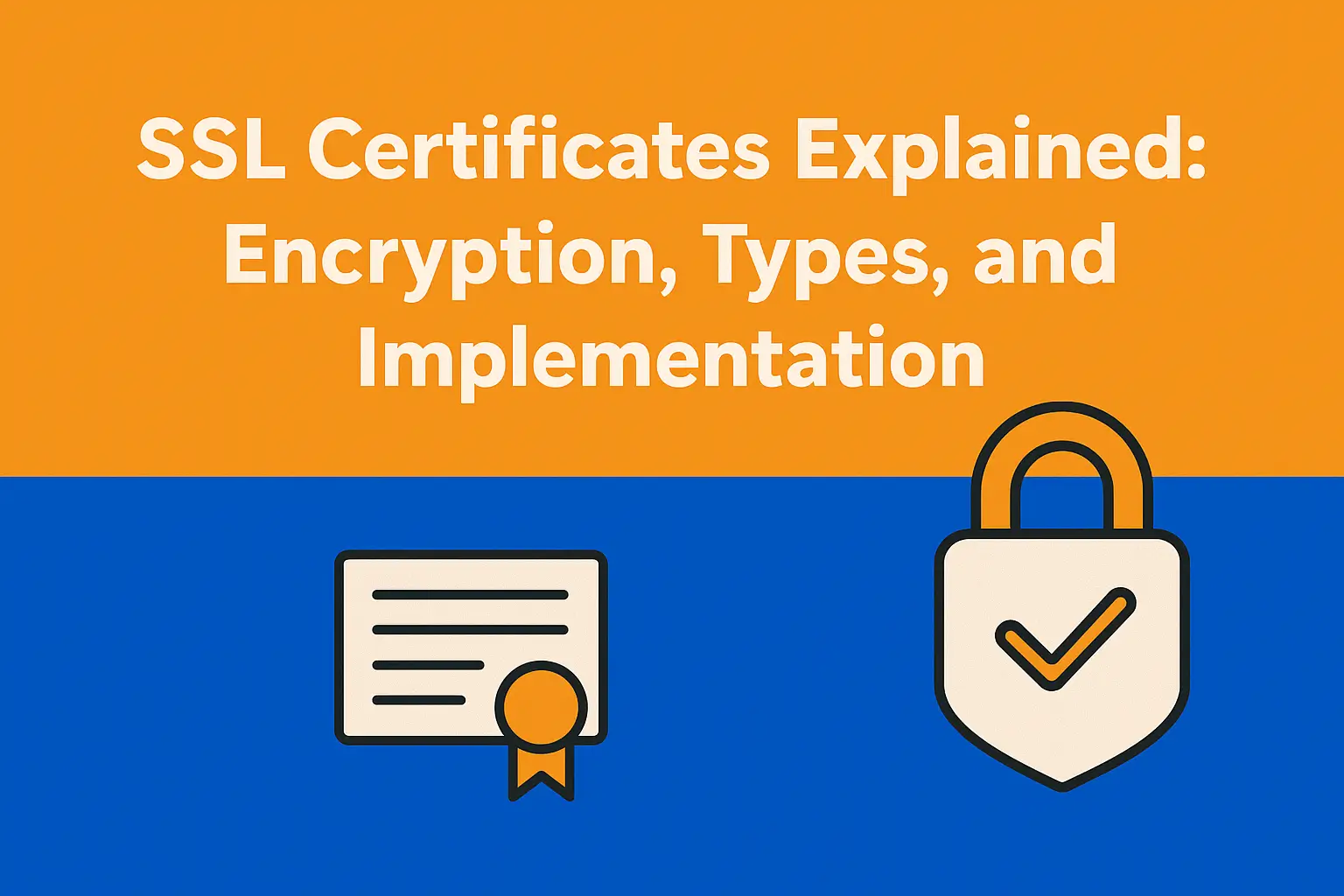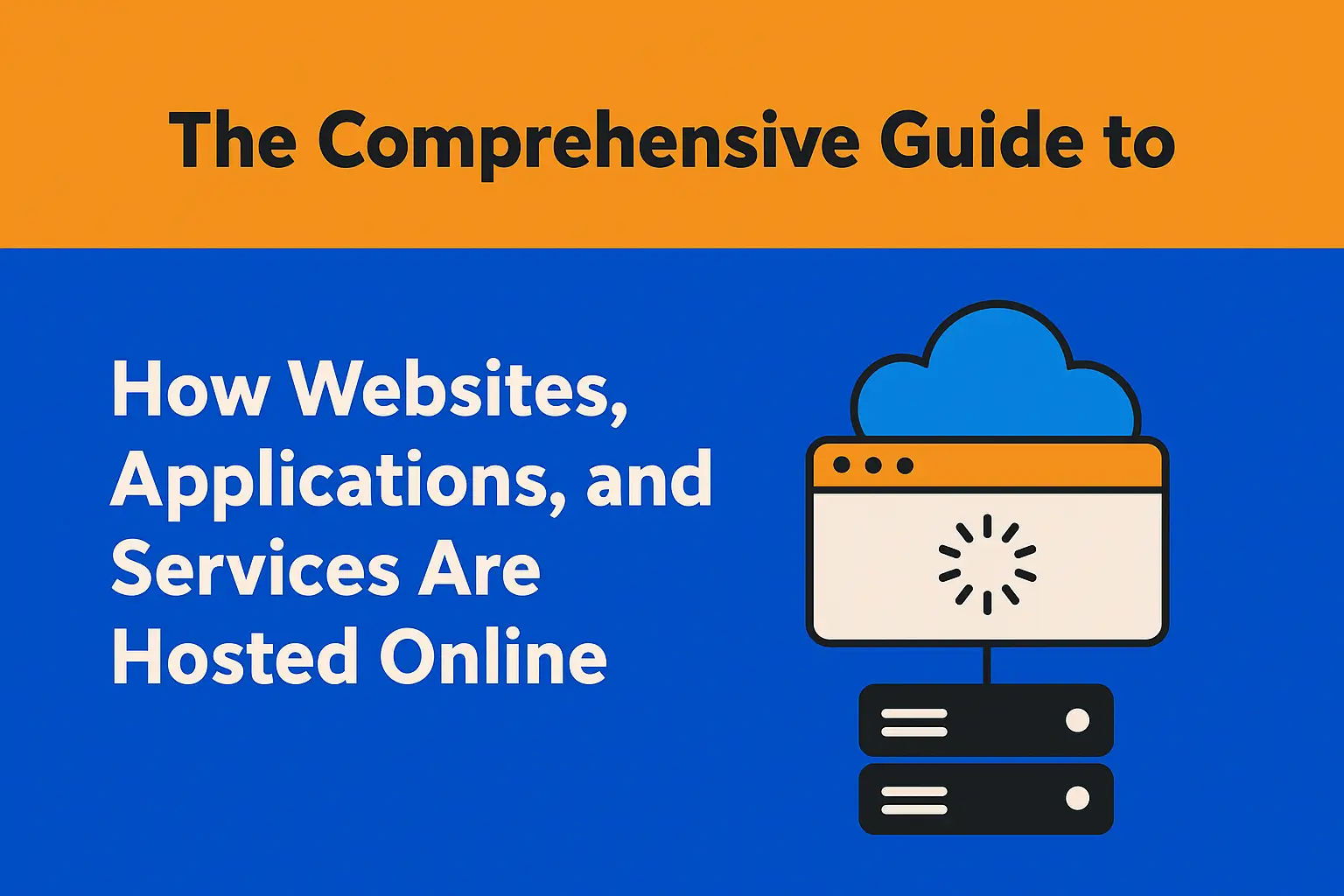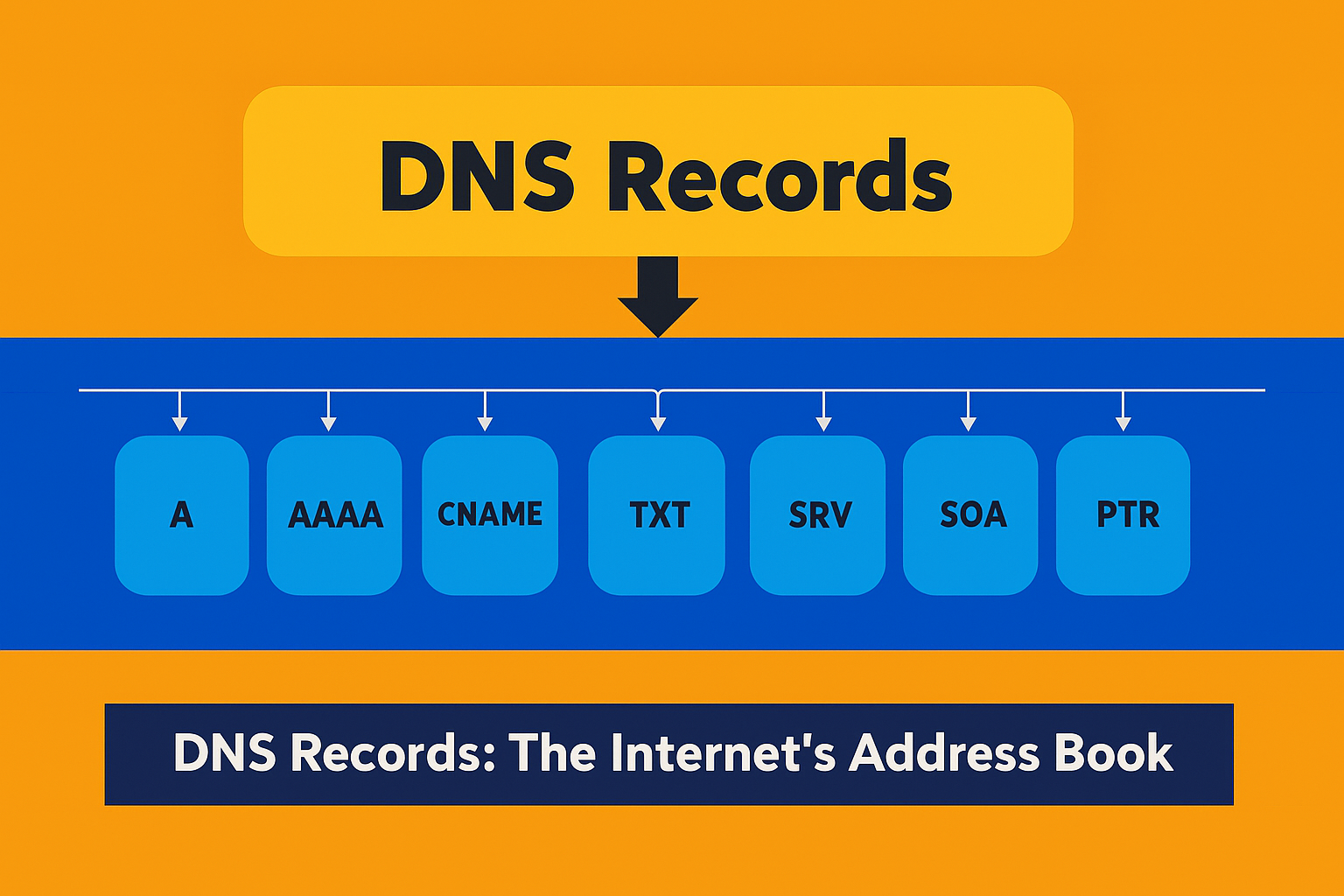
Introduction to Web Hosting
Web hosting is a critical component of maintaining an online presence. At its core, web hosting refers to the service that allows individuals and organizations to make their website accessible via the World Wide Web. A web hosting provider offers the technologies and services needed for a website or webpage to be
Before selecting the right hosting provider, it is crucial to assess your unique hosting needs meticulously. The type of website you are planning plays a significant role in defining your hosting requirements. For instance, if you intend to set up a personal blog, your needs will differ markedly from those of an e-commerce platform or a corporate website. Personal blogs generally require less storage and bandwidth compared to e-commerce sites, which may need extensive storage capabilities to host numerous product images and handle substantial user activity.
Web traffic estimation is another critical factor. A website with minimal traffic may function adequately on shared hosting plans, which are cost-effective but offer limited resources. Conversely, if you expect heavy traffic, a Virtual Private Server (VPS) or a Dedicated Server would be more suitable. These options provide more bandwidth, storage, and enhanced performance, ensuring your site remains responsive during traffic surges.
Beyond basic storage and bandwidth considerations, some websites necessitate specific functionalities. E-commerce sites often require robust security features, including SSL certificates and firewall protection, increasing the need for hosting providers that specialize in secure solutions. Similarly, websites needing reliable email hosting services or intricate database support must account for these demands when choosing a hosting provider.
Future-proofing your hosting choices is essential to accommodate your website’s growth. Predict your site’s growth trajectory and opt for a plan that can scale seamlessly. This might involve selecting a provider who offers flexible upgrade options, ensuring you can easily transition to a more robust hosting plan as your needs evolve. Additionally, look for features like extensible storage, additional bandwidth provisions, and the ability to handle increased server load without compromising performance.
In summary, accurately assessing your hosting needs involves evaluating the type of website, anticipated web traffic, and specific functionalities, while making provisions for future growth. This holistic approach will guide you towards the most appropriate hosting plan, ensuring your website runs smoothly and efficiently.
Understand Different Types of Hosting
Choosing a hosting provider necessitates a clear understanding of the various hosting solutions available. Each type of hosting presents distinct features and benefits, tailored to different business needs. The primary hosting options include shared hosting, VPS (Virtual Private Server), dedicated hosting, and cloud hosting.
Shared hosting is the most economical option, ideal for small websites or blogs with limited traffic. In this model, multiple websites share the same server resources, leading to reduced costs. However, the performance can fluctuate due to resource sharing, and security risks may be higher. Shared hosting is manageable even for novices, thanks to its user-friendly nature.
VPS hosting, or Virtual Private Server hosting, offers a middle ground. It partitions a physical server into several virtual servers, each with its own resources. This option provides better performance and reliability compared to shared hosting. VPS hosting is suitable for growing websites that demand more control and security without the high costs of dedicated hosting. However, it requires a moderate level of technical knowledge for effective management.
Dedicated hosting represents the premium choice, where an entire server is dedicated to a single website. This setup delivers optimal performance, maximum security, and full control over server configurations. It is a preferred option for large-scale businesses or high-traffic websites that require robust performance and enhanced security. The trade-off, however, is the substantial cost and the need for advanced technical expertise.
Cloud hosting leverages multiple interconnected servers to host websites, ensuring scalability and reliability. Resources can be scaled up or down based on traffic demands, making it a flexible solution for dynamic websites. This model offers higher uptime and reduced risk of server failure, as the load is distributed across multiple servers. However, cloud hosting can be more expensive and may require specialized management skills.
Understanding these hosting types—shared, VPS, dedicated, and cloud hosting—enables a more informed decision tailored to your website’s unique requirements in terms of performance, scalability, cost, security, and ease of management. Selecting the appropriate hosting solution is crucial to the seamless operation and growth of your online presence.
Evaluate Hosting Provider Reliability and Uptime
When selecting a hosting provider for your website, reliability and uptime guarantees are crucial factors to consider. The reliability of a hosting service significantly impacts your website’s accessibility and overall user experience. Frequent downtime can lead to frustrated visitors, loss of revenue, and diminished trust in your site. Therefore, understanding and evaluating uptime guarantees is essential to ensure your website remains consistently available to users.
Uptime refers to the percentage of time a server is operational and accessible over a given period. Leading hosting providers often guarantee up to 99.9% uptime, meaning your site is likely to experience less than one hour of downtime per month. However, it’s important to remember that even a small percentage of downtime can have substantial negative effects on businesses that depend heavily on online presence. Hence, a reliable hosting provider should offer extensive uptime guarantees.
When assessing uptime guarantees, examine Service Level Agreements (SLAs) provided by hosting services. SLAs typically outline the provider’s commitment to uptime metrics and specify the compensations available should these metrics not be met. This agreement is pivotal as it provides an assurance of the service quality you’re entitled to receive. Look for SLAs that offer clear, concise, and enforceable uptime commitments.
Beyond the provider’s promises, seeking out independent reviews is also beneficial. Independent reviews and third-party monitoring services provide unbiased insights into the actual uptime performance of hosting providers. Websites such as HostingFacts and TrustPilot offer detailed reviews and uptime statistics based on real user experiences and continuous monitoring. These resources can provide an unfiltered perspective on the reliability of different hosting services.
By carefully evaluating reliability and uptime guarantees through SLAs and independent reviews, you can make an informed decision when choosing a hosting provider. Ultimately, prioritizing these aspects ensures a more stable and satisfying user experience, safeguarding the performance and reputation of your website.
Examine Security Features and Protocols
Security stands as one of the most critical factors when selecting a hosting provider, especially given the increasing number of cyber threats and data breaches. Ensuring that your chosen provider offers robust security measures is essential for safeguarding your website, its data, and, ultimately, your reputation.
An initial aspect to scrutinize is the availability of SSL (Secure Socket Layer) certificates. SSL certificates encrypt data transferred between the user and the server, providing an essential layer of security, particularly for e-commerce websites and portals that handle sensitive information. Most reputable hosting providers offer SSL certificates or integrate easily with third-party providers.
Firewalls constitute another vital defense mechanism. They act as a barrier between your website and potential malicious attacks, filtering out unwanted traffic and thwarting any unauthorized access attempts. Many hosting providers include firewall protections as part of their security package, but it is advisable to validate the robustness and configurability of these firewalls before making a decision.
In addition to SSL certificates and firewalls, DDoS (Distributed Denial of Service) mitigation services are crucial. DDoS attacks aim to overwhelm your website with a flood of redundant traffic, leading to service outages. Reliable hosting providers deploy multiple strategies to detect and neutralize such threats, ensuring your website remains functional even during an attack.
Regular backups are another essential feature to look for. These ensure that in the event of data loss—be it due to hardware failure, human error, or a cyber-attack—your data can be quickly restored. Always verify the frequency of these backups and whether they are managed automatically by the hosting provider.
Lastly, compliance with industry standards and regulatory requirements cannot be overstated, particularly for businesses that handle sensitive data, such as e-commerce websites. Providers that adhere to standards like ISO 27001, GDPR, and PCI DSS demonstrate a commitment to maintaining a secure environment, which should be a non-negotiable criterion in your selection process.
Check Customer Support Options
When selecting a hosting provider, the quality of customer support should be a paramount consideration. Reliable and accessible customer support can make the difference between a smooth operation and prolonged downtime, affecting both your productivity and your user experience. Various types of support options are generally available, including phone, email, live chat, and an extensive knowledge base. Each of these avenues offers unique advantages, and the combination of multiple support channels can provide comprehensive assistance for various issues.
Phone support is beneficial for urgent issues requiring immediate attention and allows for real-time problem resolution. Email support, while often less immediate, is useful for more complex queries that may require extensive documentation or a detailed response. Live chat is increasingly popular, offering a balance between immediacy and convenience. It enables quick problem-solving without the wait time typically associated with email. An extensive knowledge base, comprising articles, tutorials, and FAQs, can empower users to troubleshoot and resolve common problems independently.
The advantage of 24/7 availability cannot be overstated. Issues can arise at any time, and having round-the-clock support ensures that problems are addressed promptly, minimizing any potential downtime. This is particularly crucial for international businesses and e-commerce websites that operate beyond standard business hours.
Evaluating the quality of customer support can be approached in several ways. Customer reviews are a valuable resource; they provide firsthand accounts of other users’ experiences with the support team. Additionally, many hosting providers offer trial periods that allow you to test their services, including customer support, before making a commitment. Direct inquiries to the support team, even before becoming a customer, can reveal their responsiveness and willingness to assist.
By rigorously assessing the customer support options, their accessibility, and proven reliability through reviews or trials, you can ensure that your hosting provider will stand by you whenever issues arise, helping maintain the seamless operation of your website.
Review Pricing and Payment Plans
When choosing a hosting provider, it’s crucial to analyze the cost aspect thoroughly. Hosting providers employ varying pricing structures, each catering to different needs and budgets. The first step in understanding these structures is to examine the initial setup fees. While some providers offer free setups to attract new customers, others might charge a one-time fee. Weighing these costs against your overall budget is essential.
Equally important are the renewal rates, which can significantly impact your expenses in the long term. It is not uncommon for hosting providers to offer attractive initial discounts, only to increase the renewal prices later. Make sure to read the fine print to avoid unexpected price hikes.
Refund policies are another critical factor. Some hosting providers offer a money-back guarantee within a specified period, granting you the flexibility to test their services. If the service does not meet your expectations, you can reclaim your investment. Ensure you are aware of the duration and conditions of these guarantees.
Long-term contracts versus month-to-month plans also require careful consideration. Monthly plans offer flexibility, allowing you to switch providers without long-term commitments. However, long-term contracts might come with discounted rates, making them cost-effective for businesses with a longer timeframe.
Balancing cost with the required features and quality of service is vital. While it might be tempting to opt for the cheapest option, compromising service quality for cost savings can lead to issues such as downtime, slow performance, and inadequate support. Consider the price in conjunction with features like bandwidth, storage, and technical support.
In conclusion, thorough evaluation of setup fees, renewal rates, refund policies, and payment plans is essential in choosing the right hosting provider. By balancing these cost considerations with the necessary features and ensuring a high quality of service, you can make an informed decision that meets your needs.“`html
Seek Out Reviews and Recommendations
One of the pivotal steps in selecting the right hosting provider is investigating user reviews and expert opinions. Leveraging insights from existing customers can provide a comprehensive overview of the service’s quality, performance, and customer support. Tech forums, review sites, and social media platforms are some of the most reliable sources for genuine feedback.
Tech forums such as Stack Overflow and Reddit house extensive discussions where users exchange their experiences and advice. Search for threads related to hosting providers and pay close attention to recurring comments about uptime, speed, and customer service. The level of user engagement and specifics shared in these discussions can reveal much about a provider’s reputation.
Review sites dedicated to web hosting, like Trustpilot, G2, and HostAdvice, aggregate user ratings and detailed reviews. These platforms often rate hosting providers on multiple factors like reliability, ease of use, and customer support, providing a balanced perspective. While reading user reviews, focus on patterns rather than isolated opinions; consistent feedback about downtime, for example, can be a red flag.
Social media channels such as Facebook groups and Twitter discussions can also be valuable. These platforms host real-time conversations and you can witness firsthand how hosting companies interact with their customers. A proactive and responsive customer service team positively reflected in social media interactions is a strong indicator of reliable support.
When interpreting feedback and ratings, it is essential to consider both positive and negative experiences. No hosting provider is immune to negative reviews. However, the frequency and nature of these critiques, along with the company’s response, are crucial aspects to evaluate. Positive testimonials praising consistent performance and effective customer service can affirm a provider’s credibility.
Ultimately, taking the time to seek out and analyze these reviews and recommendations will contribute significantly to making an informed decision. Consider the general consensus and look for any prevalent trends that align with your specific hosting needs.
Make Your Final Decision
After thoroughly gathering and analyzing all pertinent information, your next step is to synthesize this data to make a well-informed decision on your hosting provider. Start by revisiting the key factors that are most critical to your specific needs and future goals. These factors could include pricing, scalability, customer support, uptime guarantees, and features such as backup solutions, SSL certificates, and control panel usability.
A practical tool for this stage is a comparison chart. Create columns for each hosting provider you are considering and rows for each key factor. By filling in this chart, you can visually weigh the pros and cons of each option. For example, charting the customer support response times and track records of uptime can highlight which providers are the most reliable. Including your priorities in this comparison will help you see more clearly which provider aligns best with your exact requirements.
Additionally, read customer reviews and case studies to gain further insights into how these hosting providers perform in real-world scenarios. These reviews often provide nuanced perspectives on aspects such as customer support efficiency and the actual experience of using the hosting services’ control panels. Pay attention to consistent feedback trends, both positive and negative, to get a balanced view.
Before making your final decision, it is prudent to contact the customer support teams of your top choices. Engage with them through chat or phone to assess the quality of their support services firsthand. Your interaction experience can confirm whether their support lives up to the claims made in their promotional materials.
Once you have chosen your hosting provider, remember that this decision isn’t set in stone. Periodically revisit your hosting needs and evaluate if your provider continues to meet your expectations as your business or website grows. Hosting needs can evolve, and staying proactive will ensure that your hosting service continues to fulfill your requirements efficiently.





0 Comments